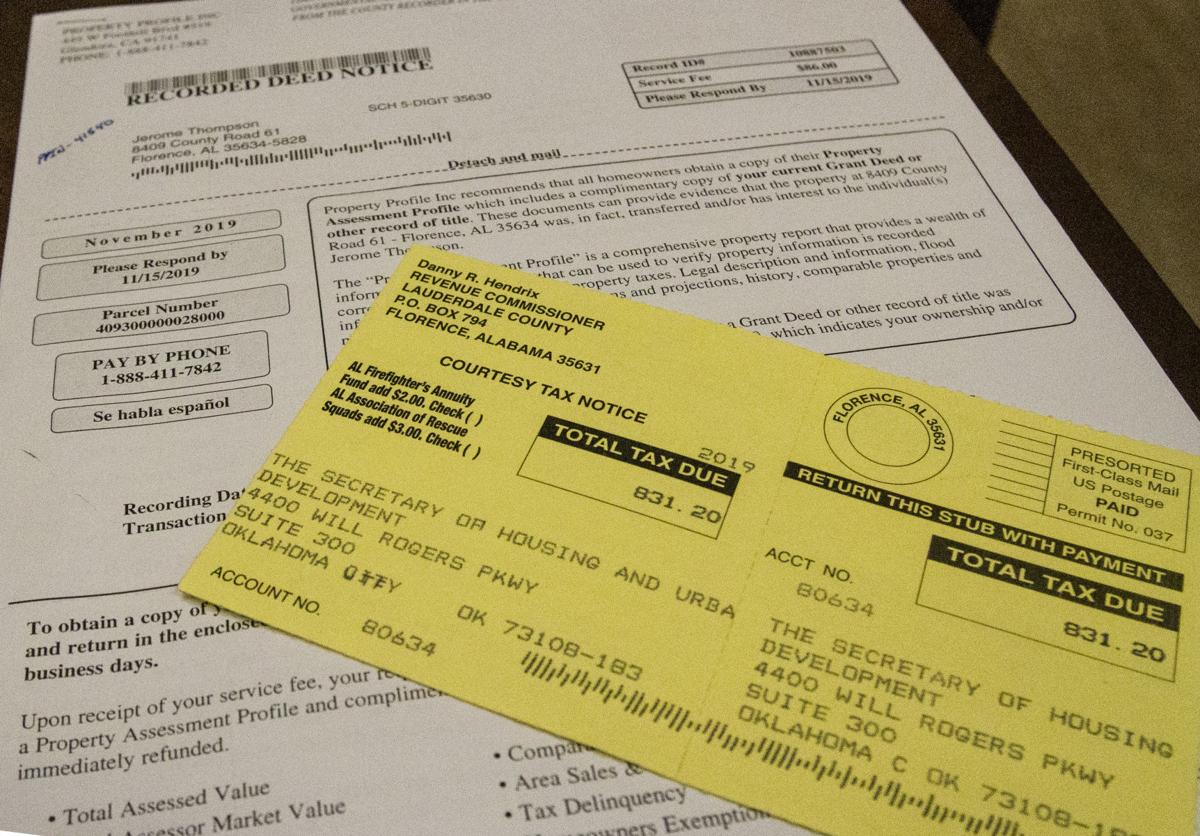Home>Home Maintenance>What Is MPAC Property Assessment Notice


Home Maintenance
What Is MPAC Property Assessment Notice
Modified: March 6, 2024
Learn about MPAC property assessment notice and how it affects your home maintenance. Gain insights to ensure you're informed and prepared.
(Many of the links in this article redirect to a specific reviewed product. Your purchase of these products through affiliate links helps to generate commission for Storables.com, at no extra cost. Learn more)
Overview of MPAC Property Assessment Notice
The MPAC Property Assessment Notice is an important document that homeowners receive periodically from the Municipal Property Assessment Corporation (MPAC). This notice contains crucial information about the assessed value of your property and plays a significant role in determining property taxes in Ontario, Canada.
MPAC is an independent organization responsible for assessing and classifying all properties in Ontario. Their assessments help municipalities calculate property taxes based on the assessed value of each property. The MPAC Property Assessment Notice provides homeowners with an update on the assessed value of their property, potentially impacting their property taxes.
Receiving the MPAC Property Assessment Notice is a regular occurrence. Property assessments are typically conducted every four years, although this interval may vary. It is crucial to carefully review and understand the notice as it can greatly affect your financial obligations as a homeowner.
The assessment is determined by evaluating various factors, including property size, location, building characteristics, and recent real estate market conditions. The MPAC uses extensive data analysis and valuation methodologies to establish accurate property assessments. These assessments are meant to reflect the fair market value of the property as of a specific date.
Homeowners should not confuse the MPAC Property Assessment Notice with their property tax bill. The notice is a separate document that provides an updated assessment value of your property, which will be used in the calculation of property taxes for the applicable taxation year.
It is important to note that the MPAC Property Assessment Notice is for informational purposes only. It does not represent the actual property tax amount owed by homeowners. The tax amount is determined by your municipality, which sets the property tax rate based on the assessed values provided by MPAC.
By understanding the assessment notice and its implications, homeowners can gain valuable insights into their property’s value and make informed decisions regarding their financial planning, including budgeting for property taxes. It is crucial to carefully review the document and take appropriate actions if necessary.
In the upcoming sections, we will delve deeper into how to interpret the MPAC Property Assessment Notice, its importance, and how to challenge it if you believe it to be incorrect or unfair.
Key Takeaways:
- MPAC Property Assessment Notice is crucial for homeowners in Ontario, Canada. It determines property taxes and reflects property value, empowering homeowners to make informed financial decisions.
- Understanding and challenging the assessed value on the notice can potentially lead to tax savings. Homeowners have the right to challenge the assessment if they believe it to be inaccurate or unfair.
Read more: What Is A Property Assessment Notice
Understanding the MPAC Property Assessment Notice
The MPAC Property Assessment Notice can be a complex document, but understanding its key components is crucial for homeowners. By comprehending the information contained within the notice, you can make informed decisions about your property and taxes. Let’s explore the key elements of the MPAC Property Assessment Notice:
- Property Details: The notice will provide specific details about your property, including the property address, roll number, and assessment class. This section ensures that you are reviewing the correct information related to your property.
- Assessed Value: The most important piece of information on the notice is the assessed value of your property. This value is determined by MPAC through various factors such as property size, location, building characteristics, and recent real estate market conditions. It reflects the estimated fair market value of your property as of a specific date. Keep in mind that the assessed value may change periodically as MPAC conducts reassessment cycles.
- Assessment Phase: MPAC has specific phases for conducting assessments. This section of the notice will indicate the current assessment phase for your property. Understanding the phase will give you valuable insights into when the next assessment might occur, helping you anticipate any changes in your property’s assessed value.
- Comparative Analysis: MPAC may include a comparative analysis section that compares your property with similar properties in your area. This analysis provides you with an idea of how your property’s assessed value compares to others, potentially indicating if your property is over-assessed or under-assessed.
- Previous and Current Assessment: The notice may also display your property’s previous assessed value alongside the current assessed value. This comparison allows you to see how your property value has potentially changed over the assessment cycle.
- Review Deadline: It is important to note the review deadline mentioned on the notice. If you disagree with the assessed value or believe it to be inaccurate, you have a limited timeframe to file a request for reconsideration or appeal the assessment. Make sure to mark this date on your calendar to ensure timely action if needed.
Understanding these components of the MPAC Property Assessment Notice empowers you to take control of your property assessment. By reviewing and analyzing the information provided, you can determine if the assessed value is fair and accurate. If you have concerns about the assessment, it is crucial to take appropriate steps to challenge it, which we will discuss in the next section.
Importance of the MPAC Property Assessment Notice
The MPAC Property Assessment Notice holds significant importance for homeowners in Ontario. It serves as a foundation for property taxation and can have a direct impact on your financial obligations. Let’s explore why the MPAC Property Assessment Notice is important:
- Determines Property Taxes: The assessed value provided on the notice is used by municipalities to calculate property taxes. The higher the assessed value of your property, the more property tax you may be required to pay. It is crucial to accurately assess the value to ensure fair taxation.
- Reflects Property Value: The assessed value reflects the estimated fair market value of your property as determined by MPAC. This can provide homeowners with valuable insights into their property’s worth, which can be useful when making financial decisions such as refinancing or selling the property.
- Budgeting Tool: By reviewing the assessed value, homeowners can anticipate changes in their property tax bills. This allows for better financial planning and budgeting to ensure appropriate funds are available when tax payment is due.
- Property Value Validation: The MPAC Property Assessment Notice acts as a validation tool for your property value. It analyzes objective market data and determines the value based on specific criteria. This validation can be helpful when negotiating property insurance or when considering renovations or improvements that could potentially impact property value.
- Potential Tax Savings: If you believe that your property is over-assessed, challenging the assessed value may result in potential tax savings. By providing evidence or supporting documentation, you may be able to secure a reassessment of your property, leading to a lower assessed value and reduced property taxes.
- Transparency and Accountability: The MPAC Property Assessment Notice increases transparency and accountability in the property assessment process. It provides homeowners with a clear understanding of how their property value is determined and allows them to verify the accuracy of their assessment.
It is crucial to recognize the importance of the MPAC Property Assessment Notice and take appropriate action if you have concerns about the assessed value. Understanding the implications of the notice empowers homeowners to be proactive in managing their property taxes and financial obligations.
In the next section, we will discuss how to interpret the different elements of the MPAC Property Assessment Notice to fully grasp its meaning and implications.
If you receive a MPAC Property Assessment Notice, review it carefully to ensure the information is accurate. If you have any questions or concerns, contact MPAC for clarification.
How to Interpret the MPAC Property Assessment Notice
Interpreting the MPAC Property Assessment Notice is crucial to understand the assessed value of your property and its implications. By following these steps, you can effectively interpret the notice and gain valuable insights:
- Review Property Details: Start by carefully reviewing the property details section. Ensure that the address and other information accurately reflect your property. If any discrepancies are found, contact MPAC to have them corrected.
- Analyze Assessed Value: The assessed value is the most important part of the notice. Compare it to previous assessments to see if there have been any significant changes. If you believe the assessed value is too high or low, research comparable properties in your area to get a better understanding of the market value. This will help you determine if the assessed value is accurate or requires further action.
- Understand Assessment Phase: The assessment phase indicates the timing of the assessment. Knowing the phase can give you an idea of when the next assessment may occur, helping you plan ahead. Keep in mind that assessment phases can vary, so consult the MPAC website or contact them directly for more information.
- Consider Comparative Analysis: If provided, review the comparative analysis section. It compares your property with similar ones in your area. This analysis can provide insights into how your property’s assessed value compares to others. If your property appears to be significantly over-assessed or under-assessed compared to similar properties, you may want to consider challenging the assessment.
- Note Review Deadline: The notice will provide a deadline for requesting a review or appeal if you disagree with the assessed value. Mark this date on your calendar to ensure you take timely action if needed.
- Seek Professional Advice: If you are unsure about how to interpret the assessment notice or have concerns about the assessed value, consider seeking professional advice from a real estate appraiser or property tax consultant. They can help you better understand the notice and provide guidance on the steps to take.
Interpreting the MPAC Property Assessment Notice is a crucial step in managing your property taxes and understanding the value of your property. By carefully reviewing the components of the notice and taking appropriate action if needed, you can ensure that your assessed value is fair and accurate.
If you believe the assessed value is incorrect or unfair, you have the option to challenge it, as we will discuss in the next section.
Challenging the MPAC Property Assessment Notice
If you believe that the assessed value on your MPAC Property Assessment Notice is incorrect or unfair, you have the right to challenge it. Challenging the assessment can be a complex process, but by following these steps, you can effectively navigate the procedure:
- Gather Evidence: Collect relevant evidence that supports your claim that the assessed value is inaccurate. This can include recent sales of comparable properties, property appraisals, or any other documentation that demonstrates a discrepancy between the assessed value and the true market value of your property.
- Contact MPAC: Contact MPAC to discuss your concerns and provide them with your evidence. They may be able to review your assessment and make any necessary adjustments without the need for a formal appeal.
- Request Reconsideration: If your concerns are not resolved through MPAC’s initial review, you can formally request a reconsideration. This involves submitting a Request for Reconsideration (RFR) form, along with supporting documentation, within the specified deadline mentioned on your notice.
- Appeal to the Assessment Review Board (ARB): If you are dissatisfied with the result of the reconsideration, you have the option to appeal to the Assessment Review Board (ARB). This independent adjudicative tribunal hears appeals related to property assessments. You will need to complete the necessary appeal forms and submit them to the ARB within the required timeframe.
- Prepare for the Hearing: If your appeal goes to a hearing, it is important to be prepared. Present your evidence, including any expert opinions or appraisals, and be ready to provide a persuasive argument for why the assessed value should be changed.
- Seek Professional Assistance: Challenging a property assessment can be a complex process. Consider seeking professional assistance from a property tax consultant, real estate appraiser, or lawyer who specializes in property assessment appeals. They can provide guidance, review your case, and help present a strong argument on your behalf.
It is crucial to keep in mind that there are deadlines for each step of the challenging process. Therefore, it is essential to carefully review your MPAC Property Assessment Notice and note the review deadline to ensure you take timely action.
Challenging the MPAC Property Assessment Notice is an important step in protecting your rights as a homeowner. By providing evidence and following the proper procedures, you can potentially achieve a fair and accurate assessment of your property.
Next, we will address some frequently asked questions about the MPAC Property Assessment Notice.
Read more: What Is Property Assessment
Frequently Asked Questions about MPAC Property Assessment Notice
Here are some common questions homeowners have about the MPAC Property Assessment Notice:
- What is MPAC?
- How often does MPAC conduct property assessments?
- When will I receive my MPAC Property Assessment Notice?
- What if I disagree with the assessed value on my notice?
- Will challenging the assessed value affect my property taxes?
- Are there any fees associated with challenging the assessed value?
MPAC stands for Municipal Property Assessment Corporation. It is an independent organization in Ontario, Canada, responsible for assessing and classifying all properties in the province.
Property assessments are typically conducted every four years, although the assessment cycle may vary. Homeowners receive a new MPAC Property Assessment Notice after each assessment.
The timing of when you will receive your MPAC Property Assessment Notice depends on your property’s specific assessment cycle. Typically, notices are sent out in advance of a new assessment cycle or when there are significant changes to the property’s assessed value.
If you disagree with the assessed value on your MPAC Property Assessment Notice, you have the right to challenge it. You can contact MPAC to discuss your concerns or follow the formal process of requesting a reconsideration and, if necessary, appealing to the Assessment Review Board (ARB).
Challenging the assessed value may potentially impact your property taxes. If your assessment is successfully lowered as a result of a review or appeal, your property taxes may be reduced accordingly. However, it is important to note that changes in property taxes will depend on the municipal tax rates and other factors set by your local municipality.
There are no fees associated with requesting a reconsideration of your assessed value. However, if you decide to appeal to the Assessment Review Board (ARB), there may be fees involved. It is advisable to consult with a professional or visit the ARB website to understand the current fee structure.
These are just a few frequently asked questions related to the MPAC Property Assessment Notice. It is important to remember that if you have specific concerns or questions about your assessment, it is advisable to contact MPAC directly or consult with a professional who specializes in property assessments.
Understanding the MPAC Property Assessment Notice and the options available to you for challenging the assessed value empowers homeowners to have more control over their property taxes and ensures a fair assessment process.
Frequently Asked Questions about What Is MPAC Property Assessment Notice
Was this page helpful?
At Storables.com, we guarantee accurate and reliable information. Our content, validated by Expert Board Contributors, is crafted following stringent Editorial Policies. We're committed to providing you with well-researched, expert-backed insights for all your informational needs.















0 thoughts on “What Is MPAC Property Assessment Notice”